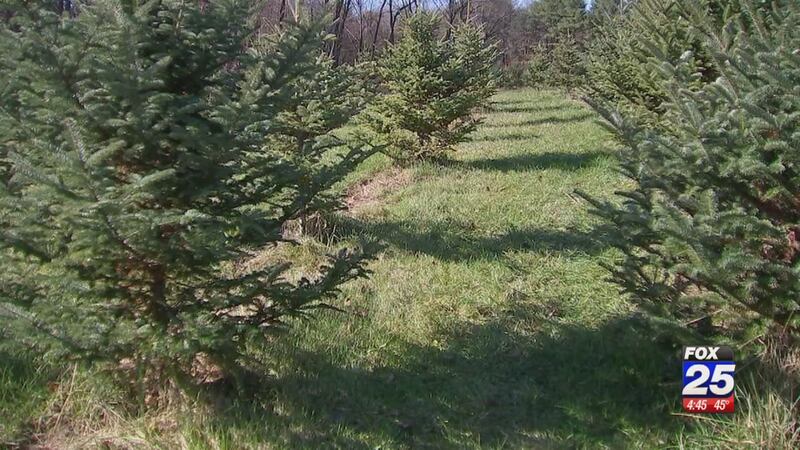STOW, Mass. — If you plan on cutting down your Christmas tree this weekend, there's a chance you may have slim pickings.
Many local Christmas tree farmers blame the dry summer, but not all farms are affect.
The ones that are affected are still making sure you get the tree that’s perfect for your family.
Mark Harnett is trying to weather the drought at his Stow Christmas tree farm.
“This is not normal. This is drought damage. You can see the needles falling off, those needles will not grow back,” said Harnett showing FOX25 one of his trees. "But you can see the damage the drought had on the new growth. This yellow here, this tree isn't quite dead yet. The needles are staying on, but obviously, it's not very healthy. It's not doing well."
Harnett owns Mistletoe Christmas Tree Farm. He planted 1,200 Christmas trees on his 11-acre farm in the spring and lost about 1,000 of them.
“Our trees just didn't seem to grow as well. We had a lot of drought damage to trees we thought we could sell, because they turned yellow on the inside we couldn't and we're hoping they will fill-in a little bit and that will cover-up a little bit of next year," said Harnett.
His farm is not alone.
The Massachusetts Christmas Tree Association says most of the affected farms are in the eastern and central part of the state.
For instance, Abbott Tree Farm in Charlton posted on its Facebook page that it's closed for the season because of the drought.
Harnett's farm on the other hand is faring better, thanks in a large part to a plan B.
“What we're doing this year, specifically, is supplementing with a lot more pre-cut trees from farms in northern New Hampshire that didn't get affected," said Harnett.
He said the drought is not only impacting his farm now, but years down the road as well.
“I think what's going to affect farms in this area is in six years, those of us who planted trees last year are going to have fewer trees in six or seven years,” Harnett explained.
He said he's selling his trees for about 15-percent less than a typical year because of the browning inside many of the trees.
Cox Media Group







